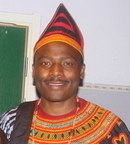10 October 2011

International IDEA
<p>In the preceding nine months, a revolutionary wind of change has engulfed North Africa and the Middle East. It brought with it unprecedented consequences on the long established political regimes of the region. In Tunisia, where the Arab Spring – as the phenomenon has been called – originated, the 23-year rule of Zine El Abidine Ben Ali suddenly ended on January 14 when the latter fled the country as the situation spiraled out of control. On February 11, it was the turn of Egypt’s Hosni Mubarak to go, after 30 years in power; and later in August, Libya’s Muammar Gadaffi, after a 42-year rule. In Syria and Yemen, the regimes of Bashar Al Assad and Abdullah Saleh are still locked in a standoff with revolutionaries demanding not only reforms but regime change. In Morocco – a hereditary monarchy, authorities were able to avert the departure of long-serving rulers witnessed in other countries across the region by placating protesters with a new constitution. How and why was this possible? What does the new constitution mean for Moroccans? To what extent is it likely to change the future of Moroccan politics?</p>
<p> </p><p><div>[toc hidden:1]</div>
Read the full article here:
